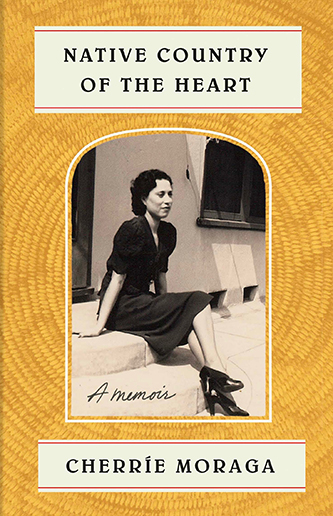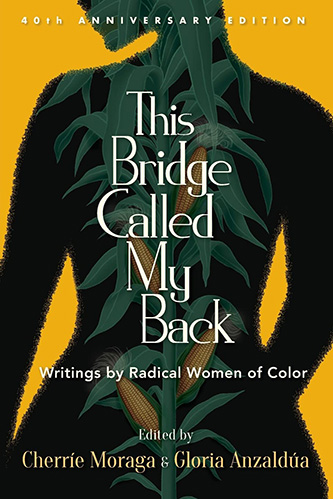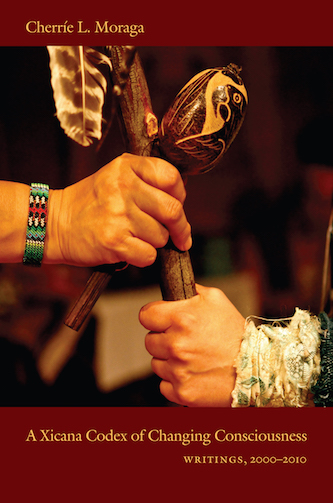Books
Recent Titles
-

The Native Country of the Heart
Published April 2, 2019.
Order copies
The Native Country of a Heart - A Geography of Desire began with the scribbling of a middle-aged daughter, in awe and broken-hearted wonder, documenting the last years of her mother’s life with Alzheimer’s. But in that microcosm of her mother’s private amnesia, Cherríe Moraga uncovered the remnants of the grand story of a people. Hers is a Mexican pueblo and an American story of loss: the loss of land, the loss of language, the loss of history; and most critically, the loss of the memory of loss itself.
In this literary, political and contemplative memoir, Moraga revisits the sore spots of her past in the definitive effort to make peace with them; to understand as she writes, “within the context of [her] ethnicity and culture, what Mexican & American/ Indian & Catholic/ rape & racism had to do with sexual desire and a contrary gender.” These are not new themes for Moraga, first introduced in her now classic work, Loving in the War Years, nearly thirty-five years ago. What is new is Moraga’s firm grasp on the ‘old,’ which finds its spiritual and political grounding in an indigenous recollection of land/geography/place.
Read More -

This Bridge Called My Back—Writings by Radical Women of Color
Fortieth Anniversary Edition. 2021.
Albany, NY: SUNY (State University of New York) Press, 2015. Co-edited with Gloria Anzaldúa.Updated and expanded edition of the foundational text of women of color feminism. 40 years later!
Order Copies
Originally released in 1981, This Bridge Called My Back is a testimony to women of color feminism as it emerged in the last quarter of the twentieth century. Through personal essays, criticism, interviews, testimonials, poetry, and visual art, the collection explores, as coeditor Cherríe Moraga writes, “the complex confluence of identities—race, class, gender, and sexuality—systemic to women of color oppression and liberation.”
Reissued here, forty years after its inception, and introduced by Moraga in part as an honoring of Bridge ancestors, this fifth edition also contains Moraga’s extensive 2015 introduction, along with a reprint of a personal statement by Gloria Anzaldúa. The new edition includes visual artists whose work was produced during the same period as Bridge, including Betye Saar, Ana Mendieta, and Yolanda López, as well as more current contributor biographies. Bridge continues to reflect an evolving definition of feminism, one that can effectively adapt to, and help inform an understanding of the changing economic and social conditions of women of color in the United States and throughout the world.Bridge Turns 40!
A live-streamed celebration produced by Las Maestras Center for Xicana[x] Indigenous Thought, Art and Social Praxis.
Read More -

A Xicana Codex of Changing Consciousness—Writings 2000-2010
Durham, NC: Duke University Press, 2011. Drawings by Celia Herrera Rodríguez.
Order Copies
A Xicana Codex of Changing Consciousness features essays and poems by Cherríe L. Moraga, one of the most influential figures in Chicana/o, feminist, queer, and indigenous activism and scholarship. Combining moving personal stories with trenchant political and cultural critique, the writer, activist, teacher, dramatist, mother, daughter, comadre, and lesbian lover looks back on the first ten years of the twenty-first century. [more]
She considers decade-defining public events such as 9/11 and the campaign and election of Barack Obama, and she explores socioeconomic, cultural, and political phenomena closer to home, sharing her fears about raising her son amid increasing urban violence and the many forms of dehumanization faced by young men of color. Moraga describes her deepening grief as she loses her mother to Alzheimer’s; pays poignant tribute to friends who passed away, including the sculptor Marsha Gómez and the poets Alfred Arteaga, Pat Parker, and Audre Lorde; and offers a heartfelt essay about her personal and political relationship with Gloria Anzaldúa.
Read More
- 1
Drama
Book Orders
-
Find an independent bookstore near you where you may purchase Moraga titles.
-
For a list of Moraga titles available to purchase online through Amazon, visit Moraga’s Author Page at Amazon.com.
- 1


